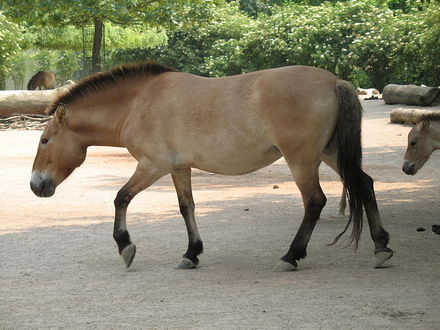The sequencing of a complete horse genome from a bone dating to around 700,000 years ago has shed light on equine evolution and has extended the known limit of DNA survival making, the research valuable for many scientists.

A Przewalski's horse
The findings offered a window into 29 regions of the domestic horse's genome that differed from that of the wild Przewalski's horse, suggesting that the changes were part of the evolutionary pattern toward domestication.
© 2013 by Lars Schmitt
Reported in the June issues of the journal, Nature, the DNA was found in a six inch piece of a fossilized horse leg bone discovered in preserved permafrost in Canada's Yukon Territory. Dating techniques allowed scientists to reveal that the equine lived at roughly the same time as wooly mammoths and saber toothed cats that shared the area with ancestral humans.
Without enough detail to know what the horse actually looked like, the scientists arrived at the conclusion that the horse was approximately the size of a modern Arabian or Icelandic horse, although probably less muscular and perhaps not as fast.
As part of the genetic research, the scientists also sequenced the DNA of a 43,000 year old horse fossil, along with modern domesticated horses, a wild Przewalski's horse, and a donkey.
By comparing the genomes, the researchers determined that the most recent common ancestor of all these species, including zebras, lived 4 to 4.5 million years ago. The findings offered a window into 29 regions of the domestic horse's genome that differed from that of the wild Przewalski's horse, suggesting that the changes were part of the evolutionary pattern toward domestication.
Scientists have praised the work on the Canadian horse, but they caution that the research on the horse might not help them decode the DNA of humans who lived long ago.
